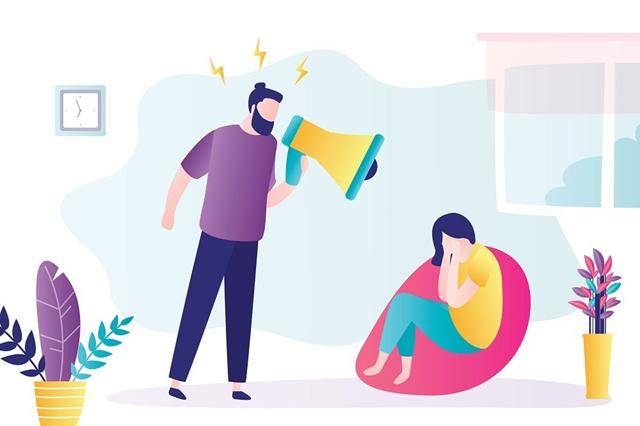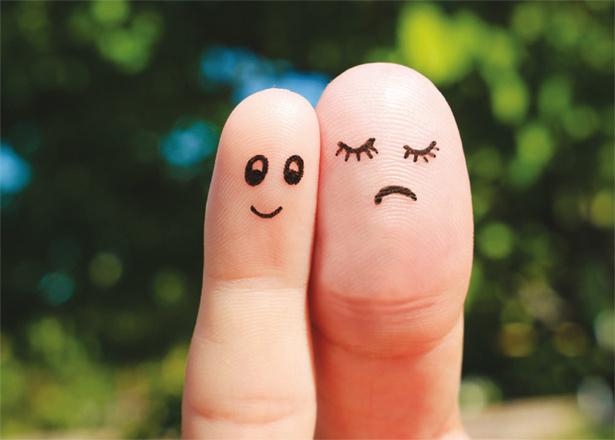You are here
Are you in a toxic relationship?
By Rania Saadi , Family Flavours - May 22,2022 - Last updated at May 22,2022

Photo courtesy of Family Flavours magazine
By Rania Saadi
Licensed Rapid Transformational Therapist and Clinical Hypnotherapist
Have you ever been in a relationship where you always felt down, bad about yourself and tried to be someone else to please your partner? If your answer is “yes”, you probably were in a toxic relationship.
Signs of being in a toxic relationship
Toxic relationships are mentally, emotionally and possibly even physically damaging to one or both parties. Here are some warning signs:
•Verbal or emotional abuse, like constant criticising or disrespect
•Feeling that your energy is drained all the time
•Constantly trying to change your personality to please the other person
•Lack of satisfaction and the presence of negative feelings like depression, anger and fear, most of the time
•Hearing comments from close friends and family indicating their concern
•Lack of ability to voice an opinion and express feelings without fear of a strong overreaction: Feeling unheard and invisible
•Losing confidence and self-esteem, caused by the regular putting down and rejection from the other partner
•Other relationships in your life are getting affected because of this toxic relationship
Why some people attract toxic relationships
People tend to subconsciously recreate patterns they have experienced in childhood. Like recreating the relationship witnessed between our parents. Suppose parents had an unhealthy relationship where one parent abused or bullied the other parent. In this case, we tend to programme this as normal and familiar and then go out in the world and choose a partner who fits this same family picture, where we feel safe because of its familiarity and unaware of the long-lasting negative impact.
Another common reason for attracting a toxic relationship is the need to resort to the “victim” role. For example, suppose that a person grew up in a household where she or he was constantly beaten or verbally abused. In this case, they will pursue a partner who will subconsciously reactivate and revive this role in them because it is familiar. Suppose a person grew up in a family where they had to sacrifice in silence while taking care of others, without the right to express feelings. This person could have also been the youngest who always followed, never allowed to share an opinion. It is expected that they will continue to play this role and find a partner that makes them feel the same.
Also, a person might attract a toxic relationship if they believe that they are not worthy. A thought process that says: “I am not good enough to deserve a person who treats me well”, leads the person to reject that thoughtful person if or when they appear in their life. I see this pattern a lot.
The subconscious mind is responsible for 95 to 99 per cent of our daily decisions, choices, behaviours and actions. And unless a person is aware of the subconscious beliefs responsible for choices made in choosing a partner, the same toxic personality will find its way into this person’s life.
Four steps to break the toxic cycle
•Acknowledging we are in a toxic relationship because most people are not even aware of it
•Acknowledging that “I am not the problem and I don’t need to change myself”. The bullying partner usually suffers from low self-esteem and the only way to feel good is by putting someone else down
•Avoiding feeding into the dynamics of this relationship; being defensive when attacked or attacking back. The more we do that, the more we keep this toxicity alive
•Working to block that toxic person’s criticism and negative energy by raising and building self-esteem by increasing positive self-talk
Did you know that 80 per cent of our daily self-talk is negative? Unless we are aware of it, we will keep putting ourselves down before anyone else does. Studies show that nothing builds self-esteem more than self-praise. After all, it is called “self-esteem” because it is based on what YOU think of yourself.
Reprinted with permission from Family Flavours magazine
Related Articles
Consultant Urological Surgeon And Consultant in Sexual Medicine Many of us, at some point in our lives, experience negative body image.
Relationships and Couples TherapistIn my couple therapy practice in Jordan, I see many couples grapple with anger management issues.
Some of us are predisposed to devalue ourselves due to childhood experiences, culture and family.
















